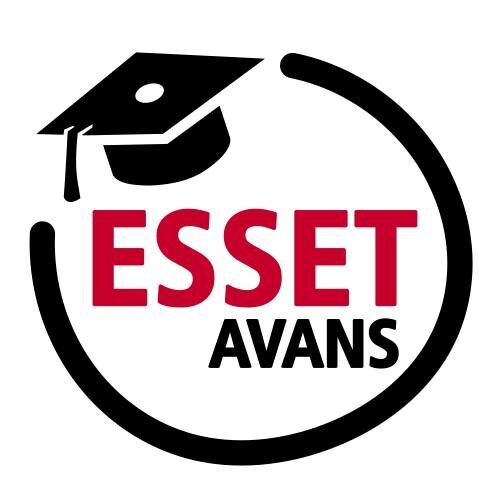First-years’ Personal and Professional Development course has a mini-course in it. Believe it or not, every student must watch around five hours of videos on how to learn. Now. At the university. When we are approaching the closing of our education!
That was my primary reaction.
I must say, from all the people I’ve talked to, quite a lot didn’t bother to actively watch the videos. They knew most of the mentioned already or they had more important stuff to handle. However, I do not consider my time wasted! Sure, there were a lot of things I knew about (I mean it would be sad if I didn’t), but I feel like that wasn’t the point of having that mini-course either. The fact is, adjusting to student life can be hard and it can lead to unhealthy or low-confidence periods. I truly believe the purpose was to offer us support in this learning stage and advice on the still existing problems.
As life is long, and we learn as we’re alive, the least we can do is to vibe with it. haHa –> It rhymes!
Where the lecturers caught my interest was when they started telling their experiences. Through the videos and tasks, I started to understand, and believe, person’s learning techniques have a considerable impact on the quality of their personal life, as well as professional. They impact your confidence, your goals, your humbleness. Your success and, most importantly, your happiness.
The course is not only about how you learn, but how you handle stress and negative thoughts. How you accept challenges and keep your perseverance. As said in the course, knowledge can be reused in more disciplines than you would think of while you are learning, and the more diverse skills you acquire the better. Concepts and impulses imbed in you and develop your understanding of future obstacles. For example, the Pomodoro technique* is a way of battling procrastination by focusing for 25 minutes on a subject without distraction. Report gets written and a topic gets mastered without overthinking the goal and fears often connected to it. Cleaning is another activity often accompanied by procrastination. In fact, I once heard an advice for ˝lazy˝ people that involves half an hour of dedicated cleaning. The house will never look perfect, at least not for long, but it looks completely decent with less than half an hour a day.
It isn’t unusual that grown-ups struggle with the problems the videos discuss, and I am sure you can recall at least one example. Someone who always forgets something very important, finishes working at 3am, or works really hard to get eaten by stress on the day of presenting their work. That is human, but of course, if the old habits make us feel demotivated and tired, no harm in trying out other possibilities. Below I will summarize the ideas that I was taught in the course. Note: not all will work for everyone.
For procrastination:
- Understand what your cues and fears are that cast you in procrastination periods
- Focuse on the progress, not the product
- Pomodoro technique*
- Try the reward system and being proud for every step
- Get a planner
- Best time to write: the night before
- Creates more space in your working memory
- Planning the end of your session is equally as important
- M. Twain famously said that if the first thing you do in the morning is eat a live frog, you can go through the rest of the day knowing the worst is behind you
For teamwork:
- Come prepared to your study session
- Avoid being late (good start matters)
- Differentiate business and chill time
For a healthy study session:
- Don’t repeat a concept you understood too much during one study session because it will not help (better recall it during the second study session)
- Excercise + sleep well + every once in a while try something new (language, dance move, formula…) = BIG BRAIN
- Take breaks with light thoughts and disburdened mind (yoga, walk, series, chat with roommate…)
For best memorizing try:
- Analogies and metaphors
- Memory palace
- Visualize yourself in a concept (mostly abstract situations and surroundings)
- Silly imaginary pictures or situations that help you remember initials, years, concepts…
- Long-term practice and recall make everything possible
- Test yourself/work with a partner and test each other
- Change your surroundings from time to time
For exams:
- Everybody will stress a little à difference is how you interpret the stress (it can even freeze you up and block all your knowledge and effort put in)
- You can laugh at how your hands shake, make jokes, or tell yourself you are excited to test your progress, whatever makes the tension positive
- Practice deep breathing
- Make peace with a bad turn out and your plan B
- Sleep well the night before or the toxins will be having a pool party in your brain
- Try doing the hard questions, but don’t get stuck on them for more than a few minutes
- Check answers from the last to the first for a fresh look
- Letting complex problems escape your mind for a while can bring unexpected solutions from the diffuse mode (e.g. the situations when you remember the answer right after you hand in the test because you finally release the grip on the subject)
For general:
- Improving only in disciplines you are talented in may leave you close minded, on the other hand, learning something unnatural to you is strongly beneficial for brain and confidence development
- Don’t be afraid to make mistakes and learn to shut off others’ opinions from time to time (or even be motivated by their disbelief)
- You either got brains or creativity or a little bit of both, WORK IT!
- Check out imposter syndrome for a common feeling of inadequacy
- Collect your thoughts in a journal, document your development, and what methods work best for you
Have a wonderful day and thank you for your time! 🙂
In summary, all great work is the fruit of patience and perseverance, combined with tenacious concentration on a subject over a period of months or years.
– Santiago Ramón y Cajal

